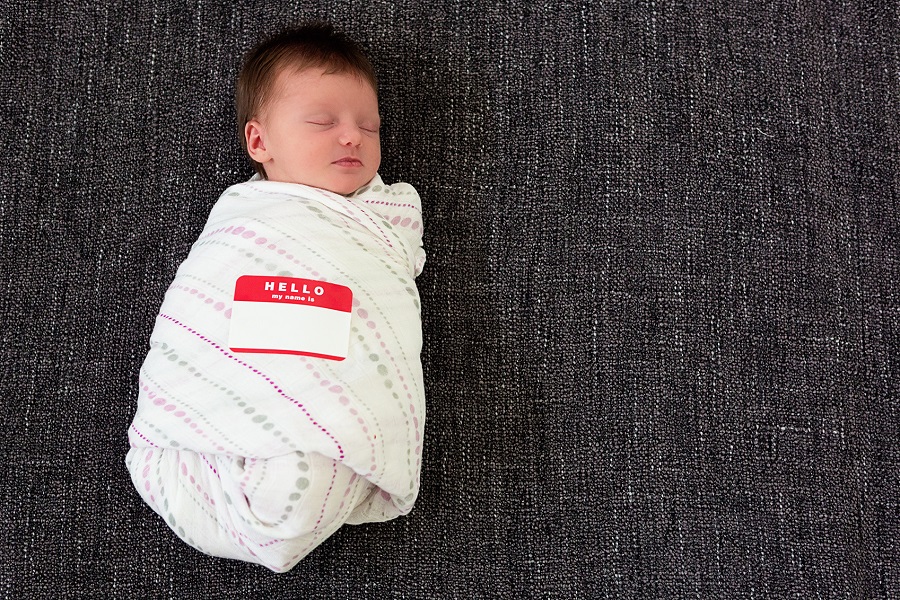Baby-Naming Around the World
Here in the US, baby naming doesn’t usually involve much pomp and circumstance. Parents will mull over name ideas before settling on the right name, and when the baby is born the birth certificate will be filled out and signed. But have you ever thought about the legal and cultural aspects of naming babies? In some countries (including the US!), there are laws to determine what is and isn’t allowed when it comes to choosing a name. And in many cultures, naming the child isn’t simply signing a birth certificate but involves ceremonies and celebrations as well.
Legally, naming babies can be complicated depending on where you live and how creative you want to be. A number of countries—Germany, Sweden, Denmark, New Zealand, Iceland—require parents to choose a name that will not “negatively affect the well being of the child,” and it’s also common to see laws that prohibit the use of either product names or unusual symbols. (For example, in China, the name “Wang @” was rejected.) Denmark is particularly strict, as parents must choose from a list of 7,000 pre-approved names: “If you want to name your child something that isn't on the list, you have to get special permission from your local church, and the name is then reviewed by governmental officials. Creative spellings of more common names are often rejected.” Icelandic parents, too, must either choose a name on the National Register of Persons or apply for approval and pass tests in order to use a different name that must still “only contain letters in the Icelandic alphabet” and “fit grammatically with the language.” Germany and Denmark require that you have to be able to discern the child’s gender from their name as well, and in Norway and Denmark you can’t use a last name as a first name either.
In China and Japan, which do not use an alphabet, names must be able to be represented by characters that already exist in the written language. In Japan, “there are a couple thousand ‘name kanji’ and ‘commonly used characters’ for use in naming babies, and only these official kanji may be used in babies' given names,” and in China, “the government recommends giving children names that are easily readable, and encourages Simplified characters over Traditional Chinese ones.”
A number of cultures, both religious and ethnic, don’t simply name their babies by signing a birth certificate, but celebrate with naming ceremonies. Many of these ceremonies have similarities, such as the length of time between the baby’s birth and the day they hold the event, and the fact that it can be considered bad luck to celebrate a baby or purchase items for the child before they are born (unlike in the US, where we celebrate babies before their birth with baby showers).
Jewish baby naming ceremonies take place either in the home or the synagogue, and involve giving the child their Hebrew name, which “could be a name that sounds like the baby's secular/English name, or one that begins with the same sound as the baby's secular/English name,” but more often it will be a name that is significant to the family. Boys will receive their Hebrew name eight days after birth; there is no set time for naming girls, but it typically happens within a few weeks of birth.
In The Gambia and Senegal, naming ceremonies are common among all of the ethnic groups, and the Wolof in particular hold a naming ceremony called an ngente. The ceremonies take place eight days after the baby’s birth in the family’s home and can last the entire day. The mother will dress in special outfits made specifically for the occasion, and many types of food will be served to the family and friends who attend. During the ceremony, “an imam (spiritual leader) or other respected elder will use a razor blade to cut a lock of hair from the baby's head, pour a little water onto its head and recite some Koranic verses as well as repeating the name of the baby in its ear,” after which the father reveals the baby’s name and Kola nuts are distributed to guests. In rural areas “the day is celebrated by sacrificing a sheep, goat, or chicken.”
Islamic cultures will host an aqiqah, which is usually held seven days after the birth of the baby (though it may be held later as well, “often the 7th, 14th, or 21st day after birth”), and is especially noted as the time of the child’s first haircut. The aqiqah involves the theme of sacrifice, as the baby’s “weight in gold or silver is given as a donation to the poor” and the family will slaughter one or two sheep or goats in order to both feed the guests and donate to the poor. The baby’s name will be officially announced during this event.
In Japan, families too officially announce their baby’s name seven days after its birth. Among family at a celebratory dinner, “the father draws the baby's name and the date of the birth on a white sheet of paper using Japanese traditional calligraphy, and posts the paper on the wall.”
Every country and culture has a different approach to naming children and celebrating births. Have you attended naming ceremonies or other similar birth celebrations? Or did you have to adhere to any laws when you named your own children? Let us know your thoughts over on our Facebook.
Resources
- 8 Countries With Fascinating Baby Naming Laws
- What to Expect at a Baby Naming
- Naming Ceremony in Gambia
- “Rites of Passage” in Senegal by Elizabeth Berg, Ruth Wan, and Ruth Lau
- Aqiqah: the Islamic Welcoming Celebration for a New Baby
- 10 Japanese traditional rituals to give every child a happy life
